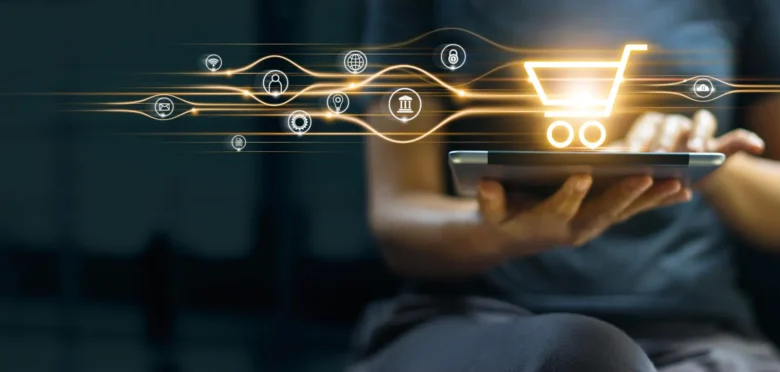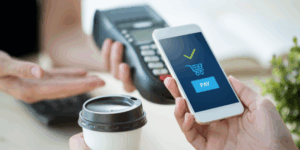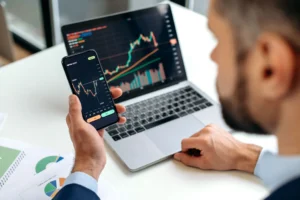As more and more money is processed online, digital transactions are clearly the future. With just a few clicks, we can pay bills, send money, and make purchases anytime, anywhere. While the transition to a cashless economy has increased efficiency, it also brings increased risks. These days, it’s not just techies who need to understand the importance of security when it comes to digital currency transactions. Everyone who manages money on a smartphone or computer needs to understand this. This article explains why strong security measures are so crucial for keeping your money safe in the digital age.
The Rise of Digital Currency Transactions
Digital payments are rapidly gaining popularity worldwide. The number of digital transactions is growing at an unprecedented rate. The term includes everything from mobile banking apps and online shopping carts to peer-to-peer payment platforms. This growth is due to the convenience and user-friendliness of these services. No more bank transfers or cash are required for purchases. This digital transformation has made financial transactions easier for individuals and businesses, making doing business simpler and faster than ever. However, the more we use these platforms, the more attractive they become to people seeking to commit malicious acts.
Understanding the Risks and Threats
Every online activity carries risks. Cybercriminals are constantly developing new ways to exploit vulnerabilities and steal private data. Phishing attacks, for example, use fake emails or websites to trick people into revealing their login credentials or credit card numbers. Malware and viruses can infect devices and log keystrokes or access financial accounts without permission. Data breaches occur when hackers steal large amounts of consumer data from corporate databases. These breaches can also expose your personal and financial information. These risks can lead to significant stress, identity theft, and financial loss.
Important Security Steps
To protect against these risks, banks and technology companies employ many advanced security procedures. Encryption is a fundamental technology that prevents data from being read by someone who could intercept it while it’s being sent from your device to company computers. Two-factor authentication (2FA) offers an essential additional layer of security. In addition to your password, you’ll need to enter a second verification method, such as a verification code sent to your phone. Advanced fraud detection systems use artificial intelligence to monitor transactions in real time and block suspicious activity before it can cause damage. These technologies work together to keep your financial information secure.
User Responsibilities
Businesses have a responsibility to keep their platforms secure, but consumers also play a vital role in protecting their data. One of the best first steps is creating a strong, unique password for each account. Be cautious if you receive an email or text message asking you to enter personal information. Always check the sender before clicking a link or downloading an attachment. Keeping your device’s software up-to-date and using good antivirus software can also help protect you from the latest security threats. Being proactive and knowledgeable can significantly reduce your risk of becoming a victim of cybercrime.
The Importance of Regulations and Compliance
Government and industry regulations are crucial for establishing security standards in the digital financial sector. The Payment Card Industry Data Security Standard (PCI DSS) is a prime example, establishing strict rules for all companies that process credit card information. Financial regulations also require companies to report data breaches and implement certain precautions to protect customer data. These regulations ensure that companies are held accountable for maintaining strict security standards, which is crucial for protecting all consumers.
The Future of Secure Digital Transactions
Security technologies for digital banking are likely to become even more sophisticated in the future. Fingerprint and facial recognition are examples of biometric identification technologies that are becoming increasingly popular and offer a secure and easy way to approve transactions. Blockchain technology also offers the promise of decentralized and highly secure transaction data. As technology advances, the ways we protect our financial information will also evolve. These methods will constantly strive to prevent potential attacks.
Your Security is Your Financial Freedom
Digital financial transactions offer many advantages, but both businesses and customers must be committed to transaction security. By identifying risks and leveraging existing security solutions, you can navigate the digital market with confidence. The best way to protect yourself against fraud and theft is to remain vigilant and transact safely online. Ultimately, strong security measures will make digital finance simple and practical for everyone.
FAQs
1. What is the most important security measure for online banking?
The two most important things you can do to protect your bank account are create a strong and unique password and enable two-factor authentication (2FA). This makes it difficult for someone to access your account, even if they know your password.
2. How can I check if a store website is secure?
You should see “https://” at the beginning of the website URL and a lock icon in the address bar. This indicates a secure connection. Choose reputable and trustworthy stores, and be wary of discounts that seem too good to be true. These could be phishing scams.
3. What should I do if I suspect my financial information has been compromised?
If you suspect that your information may have been compromised, please reach out to your bank or credit card company without delay. They can help you block your account, protect you from fraud, and issue you a new card. You should also update the passwords of any compromised accounts as soon as possible.
4. Is it safe to make financial transactions over public Wi-Fi networks?
It’s generally not recommended to conduct financial transactions over public Wi-Fi networks. Because these networks are generally unsecured, cybercriminals can more easily steal your data. If you must use public Wi-Fi, use a virtual private network (VPN) to encrypt your connection.
5. Are mobile payment apps (such as Apple Pay or Google Pay) secure?
Yes, mobile payment apps are generally very secure. They use tokenization technology, which replaces your card details with a unique digital “token.” This means merchants never see or store your card number on your device, significantly reducing the risk of data theft.



